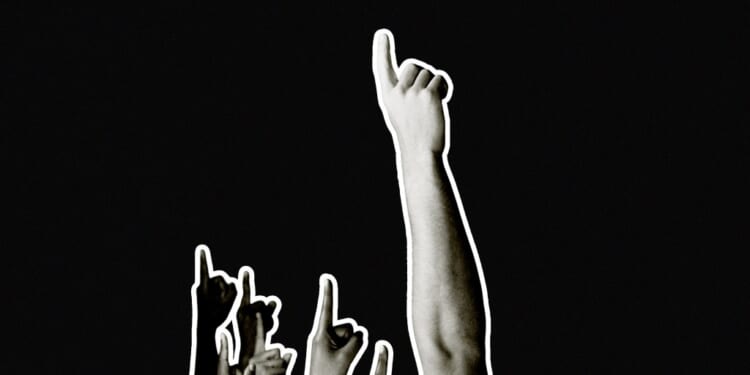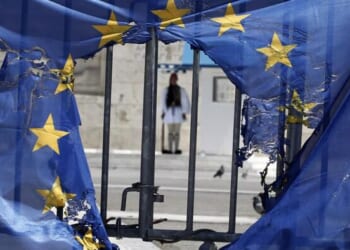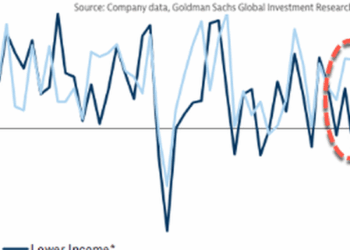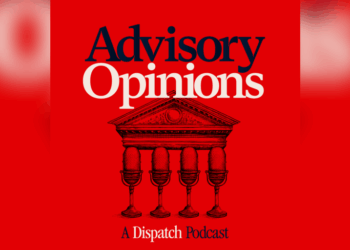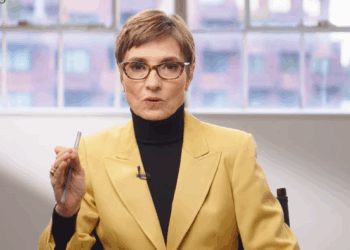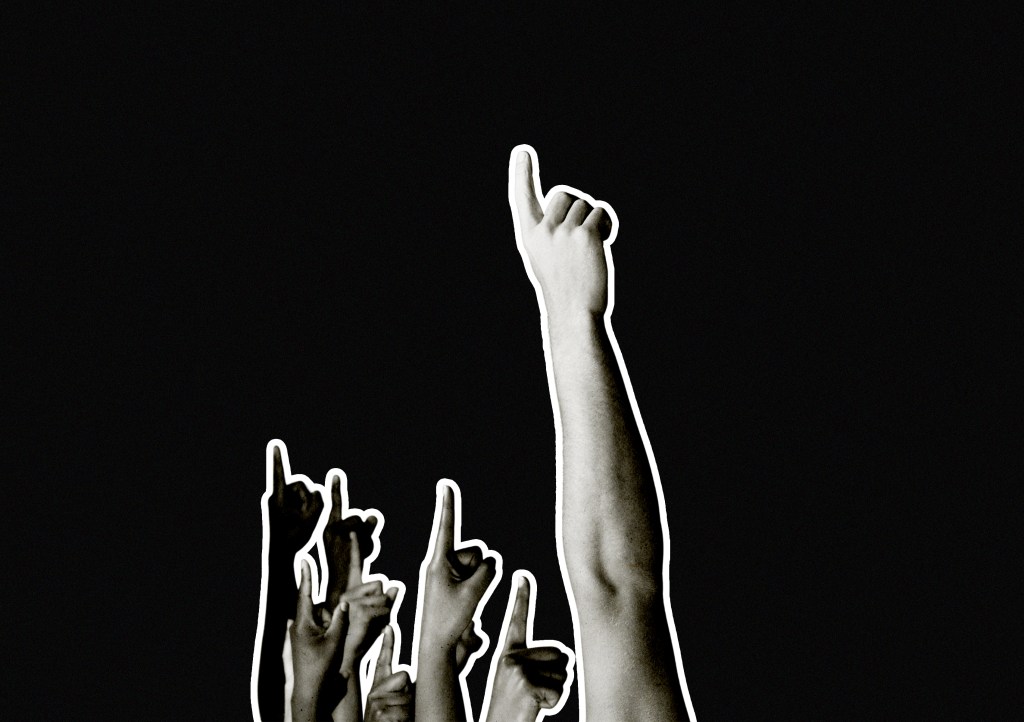
It was November 1995, and we were gathered around the television set. That’s what people did in those days: gather around a television set, rather than check their phones.
The Weekly Standard was about three months old. We writers, editors, and others were gathered around the TV to hear Colin Powell make his announcement: Would he run for president in the 1996 cycle? The answer was no.
Most of us had been against a Powell candidacy, wanting someone we regarded as more conservative. But, after making his announcement, Powell took some questions from the press. Someone asked him what he would have wanted to do with the presidency. He said, among other things, “Try to inspire people. And try to restore a sense of family, restore a sense of shame in our society…”
Whoa. A sense of shame? I remember one editor staring at the TV set, open-mouthed, and applauding. Someone else said, “Run, Colin, run!”
I don’t think I had ever heard a politician speak positively about shame. I don’t think I had heard many non-politicians speak positively about it.
I thought of Gen. Powell when reading a news article earlier this week:
Larry Summers, the former president of Harvard University who once served as U.S. treasury secretary, issued a statement saying he would step back from public commitments after the release of emails showing he maintained a friendly relationship with Jeffrey Epstein long after the financier pleaded guilty to soliciting prostitution from an underage girl in 2008.
Summers said, “I am deeply ashamed of my actions and recognize the pain they have caused.”
I am deeply ashamed—those are words that rarely escape a public figure’s lips (or anyone’s).
In the Epstein matter, there is a lot of shame to go around. Prince Andrew—now merely Andrew Mountbatten-Windsor (still pretty grand-sounding)—has been subjected to shame: stripped of his titles, honors, and whatnot.
How about Donald Trump? He was enmeshed with Epstein for a long time. In 2002, he told New York magazine, which was doing a profile of Epstein,
I’ve known Jeff for 15 years. Terrific guy. He’s a lot of fun to be with. It is even said that he likes beautiful women as much as I do, and many of them are on the younger side. No doubt about it—Jeffrey enjoys his social life.
Whether Trump is capable of feeling shame—to say nothing of expressing it—is doubtful. For the past several years, we have heard a cliché: “Shamelessness is his superpower.”
If that is true, what does that say about our society, in which Trump flourishes? He has been the GOP presidential nominee three times in a row. (The first to claim this distinction.) And We the People have elected him twice.
Shame is a big, multifaceted topic, of course. It begins way back in the Garden. There’s a right kind of shame and a wrong kind, you might say. Shame can be deserved, earned, and helpful—helpful as a spur to reform, for example. Then again, shame can be undeserved, unearned—something that misguided or wicked others try to impose on you.
In the Book of Joel, God says, “…and my people shall never be ashamed.” In Hebrews, we read that Jesus “endured the cross, despising the shame.” I have always loved that phrase: “despising the shame.”
(I have quoted from the King James Version. The Amplified Bible, to choose another translation, says that “he endured the cross, scorning its shame.”)
There are shame-honor societies. Most of us would not want to live in one, probably. Such a society is too severe, offending moral reason. Is there anything sicker than “honor killings,” the kind of murder in which a brother kills a sister because she has talked to a neighborhood boy on the street?
When I was in college, a professor of Italian recommended a book called Honour and Shame: The Values of a Mediterranean Society (appearing in 1965 and edited by J.G. Peristiany). Which brings me to Sicily—where, if you make “the sign of the horns,” you have pressed the hottest button. This is a hand gesture, indicating that the man you gesture toward has been cuckolded. No insult is more explosive.
I have a memory of 2022, when Silvio Berlusconi, the prime minister of Italy, made the sign behind the back of the Spanish foreign minister, Josep Piqué. This was during an official picture-taking of European Union leaders. Later, Berlusconi said he was just kidding. Such a scamp, he was.
When I was quite young, I didn’t get this whole horns-and-shame business. It seemed to me that any shame rested with the adulterer, not the one cheated on. I was so young…
Move to the East for a moment. In 2018, I noticed a news report that began,
Four Japanese basketball players on Monday apologized for bringing “disgrace” to their nation after they were kicked out of the Asian Games for paying prostitutes for sex.
One of the players said, “I deeply apologize for our careless act that has brought disgrace not only on basketball fans but also on all of the Japanese people.” The head of the delegation said, “I just feel a sense of shame.”
That is very Japanese. And it is not very American. And I would not trade our culture for theirs. But I think they have a point.
China has hosted the Olympic Games twice—the Summer Games in 2008 and the Winter Games in 2022—and both times, officials have been very, very nervous about how things would go. Nothing must go wrong.
In the runup to the ’08 Games, the mayor of Beijing, Wang Qishan, said, “We have to have a good Olympics, otherwise not only will our generation lose face but also our ancestors.”
Their ancestors. That’s heavy (as we used to say in the ’70s).
About 10 years ago, I met a man from Jordan, Suleiman Bakhit, who had started a line of comic books. His purpose was to give Arab youth better heroes than Osama bin Laden and his like. For his troubles, Bakhit was slashed in the face by men who wielded razor blades. They meant to shame him: to literally mark or stigmatize him. They did not succeed.
Oh, they succeeded in slashing his face, badly. But he was not ashamed. I was very impressed by this.
On the lighter side, maybe I could recall a couple of stories having to do with … forgive me, flatulence. But one of them comes from a classic work of literature.
In A Thousand and One Nights, we meet Abu Hasan. On a great and important occasion—his wedding ceremony—this fellow breaks wind. In shame, he flees to India. There he spends 10 years in peace and prosperity. But he longs to return home, and does. “May Allah grant that they do not remember what happened,” he says. But they do—and he goes back to India, where he lives, an exile, until he dies.
The Earl of Oxford had a happier experience, we understand. Bowing low to the Queen (Elizabeth I), he unfortunately let loose. Mortified, he went to France for seven years. When at last he returned to court, the Queen welcomed him, saying, “My lord, we had quite forgot the fart.”
Let’s get back to the rarefied air of U.S. politics. In 1996, the Republican presidential nominee was not Colin Powell but Bob Dole—who went around the country saying, “Where’s the outrage?” He and other Republicans regarded President Bill Clinton’s behavior as shabby and lawless.
I will dredge up some terms and names from the (distant) past: Whitewater, Travelgate, Paula Jones, Filegate. And this was before the Lewinsky scandal, which broke in early ’98.
In the wake of that scandal, we Republicans (I was one then) asked, “Where’s shame? Where’s honor?” Bill Bennett published a book called The Death of Outrage: Bill Clinton and the Assault on American Ideals. It was a national bestseller.
It all seems somewhat quaint now. Autres temps, autres mœurs.
In 2008, John McCain was the Republican nominee. In a public forum, the evangelical pastor Rick Warren asked McCain, “What’s been your greatest moral failure?” McCain answered, “My greatest moral failing—and I have been a very imperfect person—is the failure of my first marriage. It’s my greatest moral failure.”
I thought that was stand-up.
Very different was 2016’s nominee, Donald Trump, as we could spend all day detailing. Colin Powell was pointed: “Trump has no sense of shame.”
Here is Powell in My American Journey, his famed autobiography of 1995:
A sense of shame is not a bad moral compass. I remember how easy it was for my mother to snap me back into line with a simple rebuke: “I’m ashamed of you. You embarrassed the family.” I would have preferred a beating to those words.
Personally, I would not give three cheers for shame. But I would go one and a half. There has got to be some middle ground between a 17th-century Puritan village and Porky’s IV. Shamelessness should not be a superpower but a defect.

